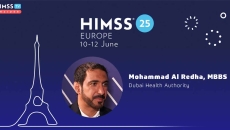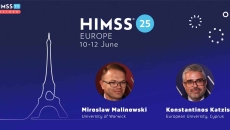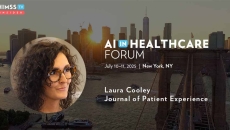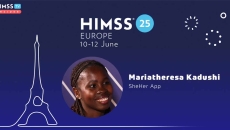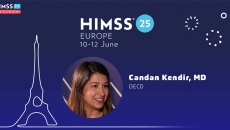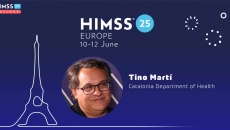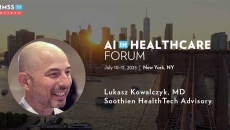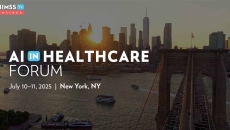HIMSS TV
The Dubai Health Authority's Dr Mohammad Al Redha says the next steps in its digital health journey are enabling easier access to imaging data and establishing a sandbox environment to encourage development of new digital tools.
MedSecurance's Miroslaw Malinowski and Konstantinos Katzis say that helping IoMT device manufacturers ensure that their tools store and transmit data securely will encourage their use by patients and clinicians.
Laura Cooley, editor in chief of Journal of Patient Experience, says many patients are skeptical of artificial intelligence, and work must be done to overcome that in order to unlock its benefits for their healthcare experience.
The SheHer app, which enables women to find healthcare content and medical professionals, is being translated for global use. Cofounder Mariatheresa Kadushi says it will also collect data that can train AI to help reduce bias.
The Expanding Innovative Alliance (XiA) is inviting institutional partners to help create its interoperability learning modules, which Instituto Universitario de Lisboa's Dr Henrique Martins believes will encourage support and adoption.
The OECD's Dr Candan Kendir shares how countries can use the latest Patient-Reported Indicator Survey (PaRIS) results to engage stakeholders to discuss policy changes that can improve patient experiences.
As Catalonia's AI-driven clinical support system has earned an 85% satisfaction rate from clinicians, Tino Martí of the region's Department of Health says communication and training will help close awareness gaps about the tool.
Staff buy-in is key to making AI work, says Dr. Lukasz Kowalczyk, a gastroenterologist and CEO of Soothien HealthTech Advisory – who also holds forth on the promise of agentic AI, the value of voice agents and the right balance of build-buy-blend.
As European healthcare data regulations evolve, Alexander Berler, IHE Catalyst's strategic business development director, says adopting its integration profiles can help vendors ensure their tools meet interoperability standards.
In Brooklyn this past week, leaders from health organizations of all shapes and sizes explored artificial intelligence's challenges and immense opportunities – from basic data governance to advanced agentic models (and everything in-between).

